Can I give my dog cheese? Yes, dogs will eat cheese when fed. As a treat, a small amount of cheese is usually safe for dogs as long as they don’t show any signs of allergy to dairy products. However, a simple “yes” doesn’t entirely encompass the canine interaction with cheese, even if some cheeses are not hazardous to dogs.
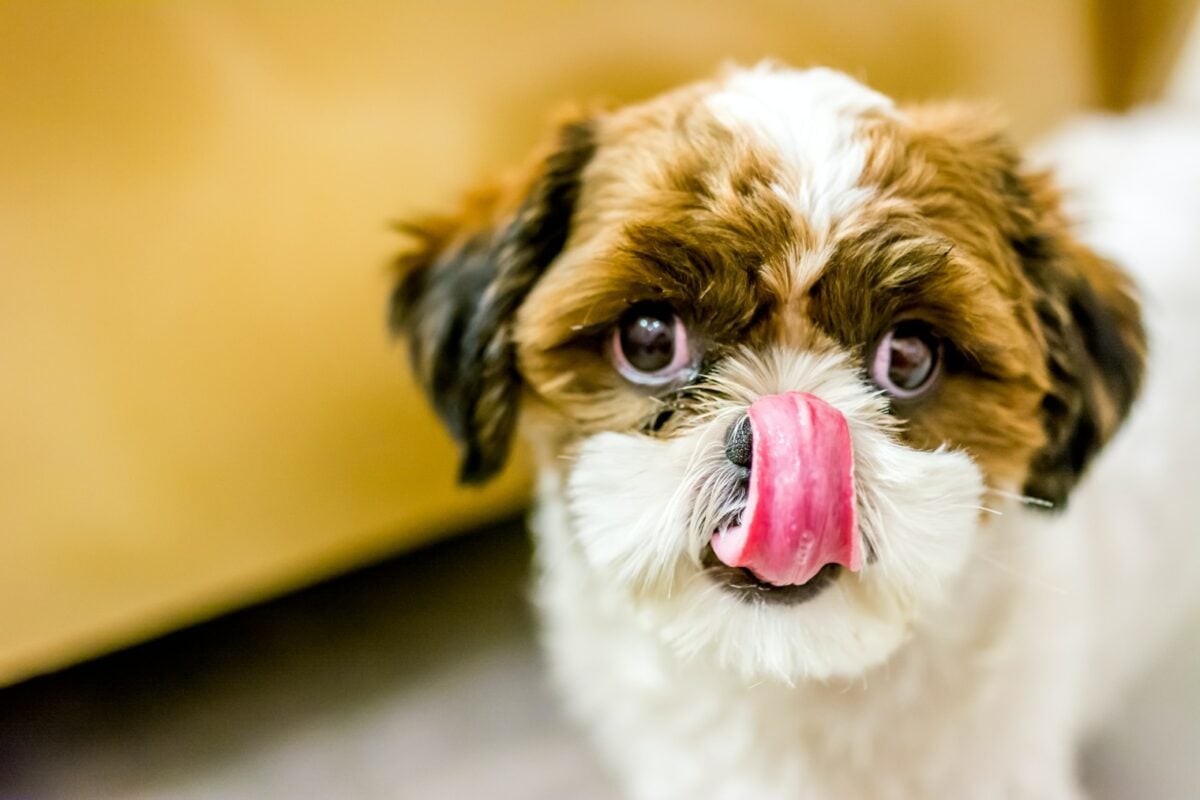
Don’t go slicing up that cheese just yet; there are a few considerations to keep in mind, including your dog’s overall health (including weight and digestive health), the quantity of cheese, and the type of cheese in question.
Keeping your pet healthy and happy is always the number one priority, so let’s investigate this topic to grant you with a better understanding of the potential benefits or dangers of cheese for your dog.
What Are the Factors to Consider Before Feeding Your Dog Cheese?
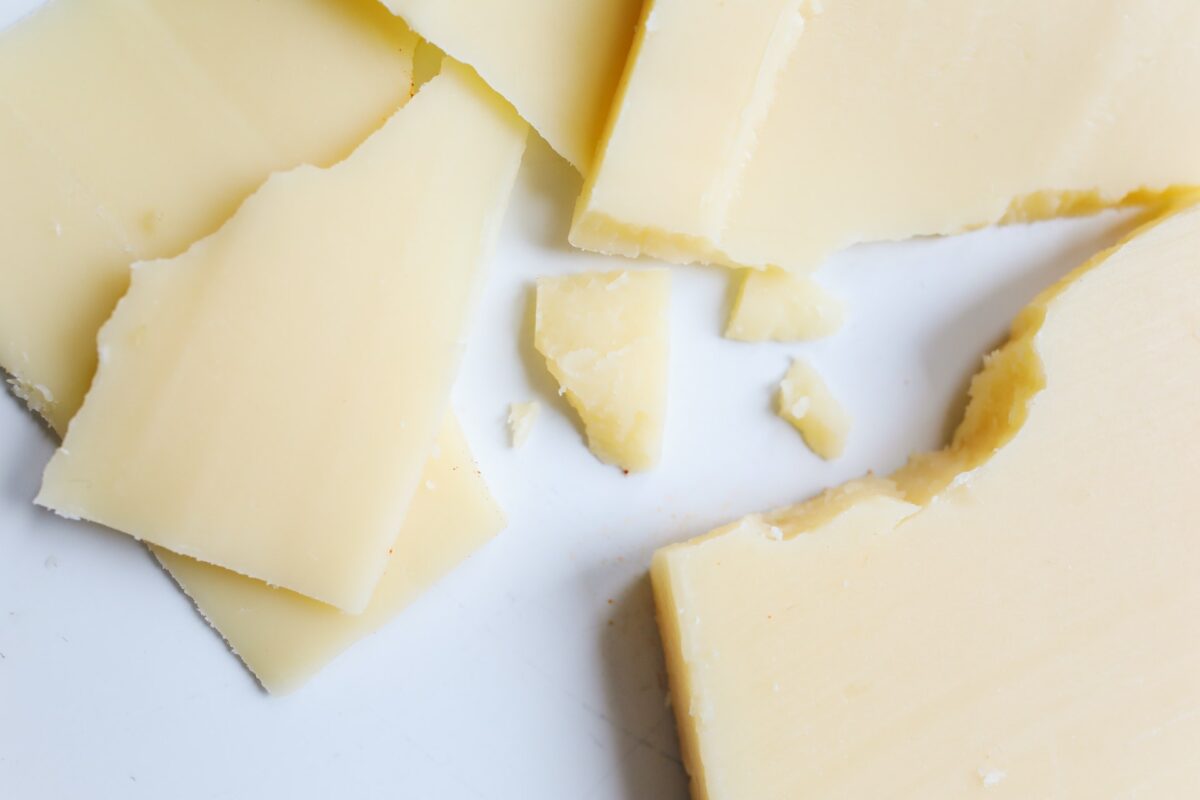
#1 Lactose intolerance
A few canines, like some people, have trouble processing lactose, which is a milk sugar. As with humans, dogs can have varying degrees of lactose intolerance. If your dog has a dairy allergy, you will know it. Avoid giving your dog dairy products like milk or cheese if you’ve noticed a lactose sensitivity. We strongly advise you to perform a small test with a small bit of cheese before feeding it to your dog in case it causes stomach trouble.
For the time being, if your dog is showing signs of an allergic response, you should refrain from feeding it any sort of dairy product until you can determine whether it was the cheese that triggered the reaction. A trip to the vet is probably in order if you want to ensure no negative effects.
#2 Fat content
The majority of cheeses are quite heavy in fat, especially saturated fat. While some fat benefits canines, excessive amounts can cause health issues like obesity, heart disease, and pancreatitis. Take account of how much cheese your dog eats and how much fat is in the cheese you feed it.
#3 Sodium content
Cheese, in general, contains a high amount of salt. While a certain amount of sodium benefits your dogs’ health, giving them too much can lead to hypertension and even organ failure. Salty cheeses like feta and Parmesan should be avoided or given to your dog only in tiny amounts.
What are the Benefits of Cheese to Dogs?
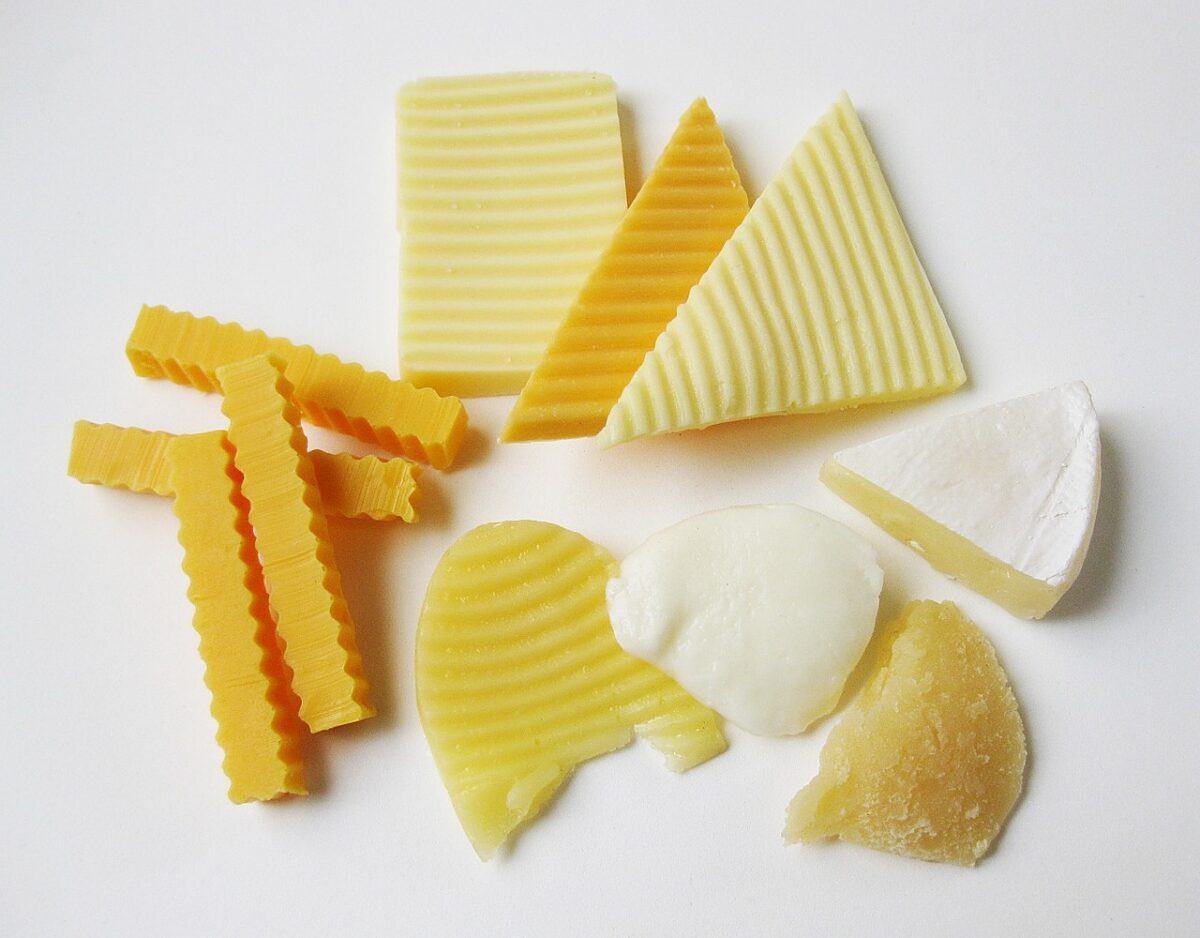
#1 High nutrients
The nutrients in cheese are quite helpful and significant. Cheese is a good source of numerous nutrients beyond protein and fat, including vitamins A, calcium, B-12, zinc, K-2, and phosphorus. Omega-3 fatty acids are an important part of a dog’s diet, and cheese is a good source of this.
#2 Motivation
The pungent odor and flavor of the cheese will surely pique the canine palate and interests them. You can offer a reward like low-fat cheese to help stimulate and encourage your dog while you train them. Take care not to overindulge your dog with cheese when trying to motivate him.
#3 Concealer
Cheese has a flavor that dogs enjoy, and because it has a texture that is typically relatively flexible, it can be an ideal medium for concealing medications that your dog might not eat otherwise.
What Are the Risks of Dogs Eating Cheese?

#1 Weight gain
Cheese has a relatively high-fat content, which contributes to its delicious flavor. But on the other hand, it is also what results in a high-calorie count per serving. For this reason, pet parents concerned with their dog’s weight should steer clear of giving cheese to their canine companions. Weight gain in your four-legged best friend is bad on its own, but it may also cause various other long-term negative effects of their health.
#2 Pancreatitis issues
Pancreatitis is a dangerous digestive condition that can threaten any animal’s life and may necessitate hospitalization. First, you should ask your veterinarian if your dog is prone to this problem before incorporating cheese into their diet.
#3 Lactose intolerant
Cheese, like other dairy products, may create an upset stomach in some individuals because their bodies cannot digest dairy products fully and correctly, particularly cheese.
Can Dogs Eat Cottage Cheese?
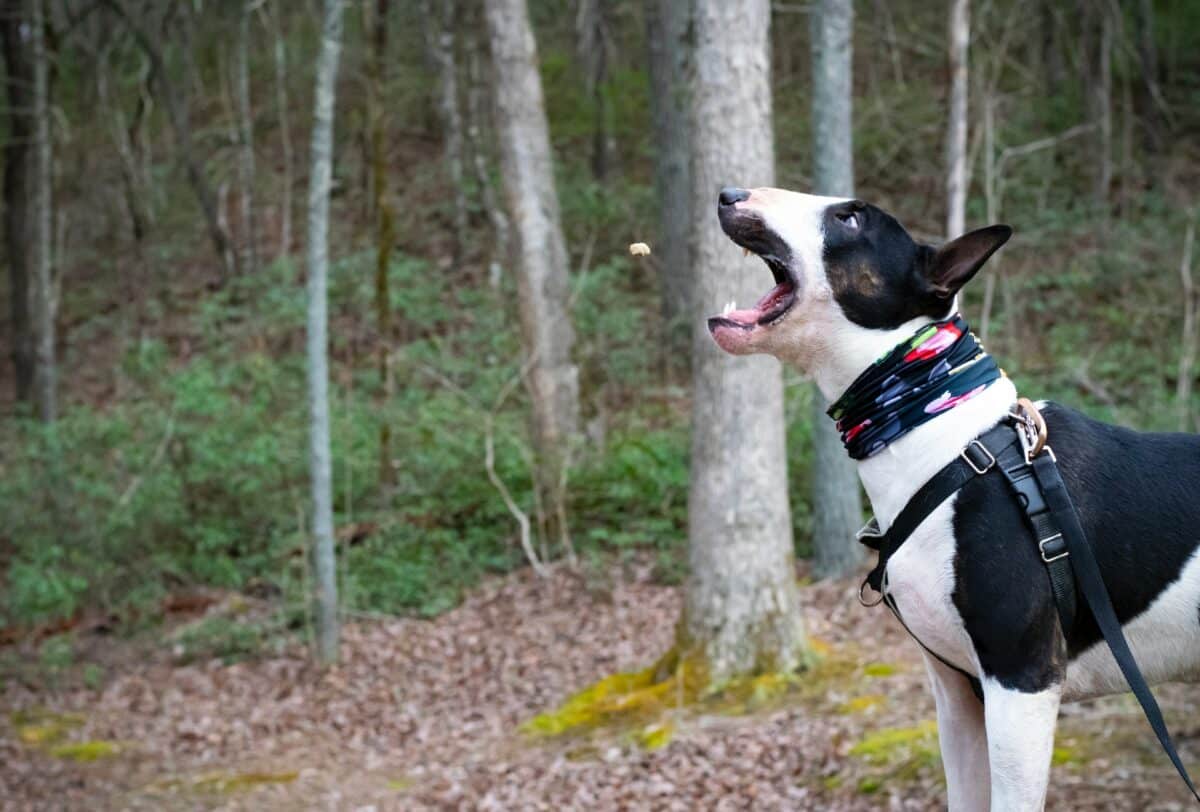
Because of the fermentation process, cottage cheese is generally believed to have less lactose than other similar dairy products. However, it is frequently blended with other milk products, so read the label carefully. The lack of flavor makes it perfect for recovering canine digestive systems. Moreover, the calcium and protein content is also quite high. Cottage cheese, like all cheeses, is heavy in fat and calories, so be careful to limit your dog’s intake if they are overweight.
Will Dogs Eat Cream Cheese?

Since it contains a relatively low level of lactose, cream cheese is a good option for dogs with lactose sensitivities or intolerances. Additionally, its salt level is lower than that of other cheeses. However, it still has a high-fat percentage and frequently has additions that dogs should avoid, such as chocolate, nutmeg, xylitol, garlic, and onion. It is strongly recommended that you refrain from giving your dog greasy cream cheese. Above all, make sure that it’s plain and unflavored.
Can Dogs Eat String Cheese?

Depending on the type and manufacturer, string cheeses may be lower in lactose and salt than other cheeses. In fact, among cheeses, string cheese made from low-fat mozzarella contains one of the lowest lactose counts. However, the stringiness of these cheeses can make it difficult for your puppy to swallow, increasing the risk of choking or causing an intestinal blockage.
Will Your Dog Eat Mac and Cheese?
Feeding your dog mac and cheese isn’t a good idea for several reasons, including the possibility of lactose intolerance, the high-fat concentration, the very high sodium load, the abundance of preservatives, and the highly processed nature of packaged mac and cheese. Plain spaghetti is fine for your dog to eat occasionally, but giving it too much can cause stomach problems.
How To Feed Your Dog Cheese Safely
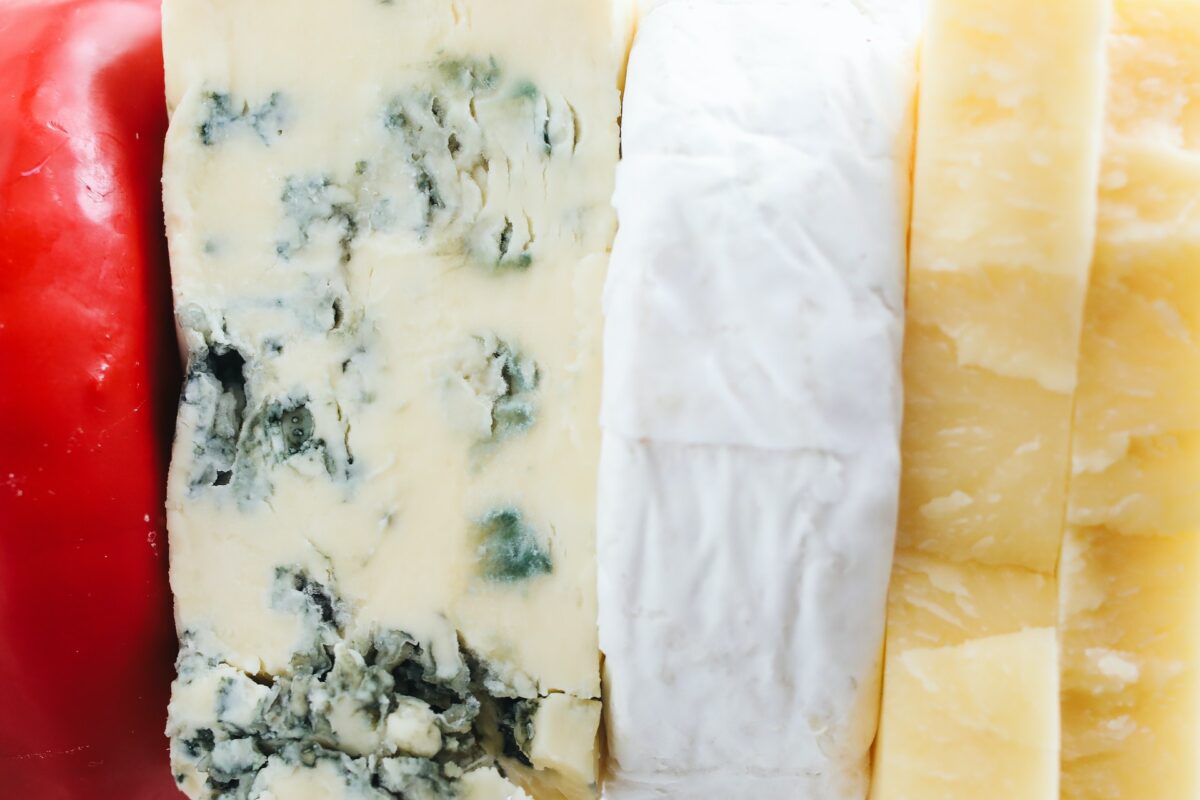
If you want to give your dog cheese, you should ask your vet about the best sort and how much is safe for your dog to eat. If you want your dog to have the healthiest possible diet, you should include treats like cheese, which are rich in calcium – although in moderate amounts. Pet owners ought to:
#1 Get Low-Fat Cheese
Cottage cheese and mozzarella are great possibilities. Avoid cheeses like goat cheese, feta, and brie with a high-fat percentage.
#2 Avoid Cheese With Lots of Spice
Feeding your spicy dog cheese can cause lots of problems for your pet. To ensure you don’t upset your dog’s stomach stay away from spiced cheese. Whenever you feed your dog anything other than formulated pet food, make sure that it’s as plain and unflavored as possible.
#3 Start With Small Portions
If your dog has never eaten cheese, you should begin by giving them a very small quantity to gauge how they will react. Cheese can be given to your dog in tiny amounts and in moderation as long as it does not cause any adverse effects, such as an upset stomach.
Combine Cheese With Your Dog’s Usual Diet
A sprinkling of cheese is a wonderful food topper. Otherwise, try putting the cheese beneath your dog’s normal meal to encourage them to work for the special reward.
Cottage cheese and cooked white rice blended in equal portions might help your dog recuperate from an upset stomach. Cheese is a great way to perk it up if your dog isn’t interested in eating his prescription food.
Do you have a picky pet who refuses to take his medication? Except for antibiotics, cheese has long been used to disguise unappealing drugs. Cheese has the same compelling appeal for dogs as humans, making it a convenient and foolproof means of ingestion.
Conclusion

Can dogs eat cheese? Yes, cheeses like cheddar, mozzarella, and cottage cheese are safe for your dog. Cheese is delicious, but consuming too much can lead to weight gain. Before treating your dog to some delicious cheese, ensure it can digest lactose.
Thank you for reading this article! There are many foods out there that are great for humans but which stand the risk of being lethal to dogs. Your dog is completely dependent on you feeding them the right things to enjoy a long and healthy life. Continue educating yourself and find out whether Dogs Can Eat Potatoes.
- Watch: Baby Buffalo Falls Victim to Hungry Male Lion - April 17, 2024
- Baby Lion Cubs Carried Across River by Mother Lion - April 16, 2024
- Death by Tiger at Drive-Through Zoo - April 16, 2024


